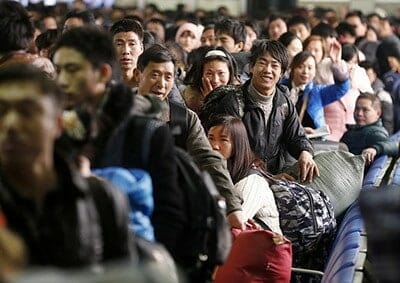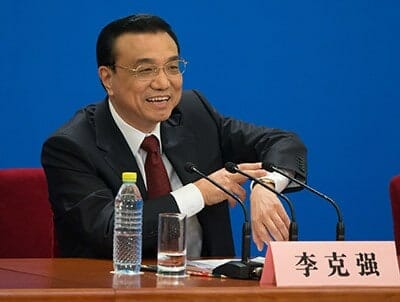
100 million rural citizens could win the right to move into China’s lower tier cities.
China’s central government is taking aim at the country’s backlog of unsold homes, and intends to allow more of its rural citizens to move into the country’s smaller cities to help buy up unwanted housing there, according to official media reports.
The new initiative comes as slowing rates of investment in real estate projects on the mainland have contributed to declining economic growth, with a leading think tank projecting last week that economic expansion in China will slow to 6.5 percent in 2016.
So far this year real estate developers have been hesitant to invest in new projects outside of the first tier cities, because of inventories of unsold homes that some sources estimate could amount to two years worth of supply in some areas.
Now, Chinese authorities believe that moving 100 million people from the countryside into China’s lower tier cities, and providing them with incentives to buy new homes could help to fill some of those unsold units and restart its housing industry.
Moving 100 Million People into Cities With a Housing Glut

Premier Li Keqiang seems to think it’s time to sell off some of China’s unwanted homes
China first announced a plan to relocate 100 million farmers and other rural dwellers into the country’s cities more than one year ago, as part of a plan to spur the ongoing development of its economy. Now top officials appear to be linking that plan with a thrust to sell off unsold homes.
“De-stocking the property market will likely be discussed at the upcoming Central Economic Working Conference,” said an article in the official People’s Daily. The Working Conference is held each December to set economic targets for the coming year.
The story noted that Premier Li Keqiang has already told a cabinet meeting that the country needs to overhaul China’s household registration system to allow more rural dwellers into the cities in order to boost the housing market.
China’s real estate sector is estimated to account directly for at least 15 percent of GDP, but investment in the industry has declined throughout 2015 as developers shy away from new projects over concerns of a housing glut.
Inventories of unsold homes in China reached a record 686 million square metres in October, a 17.8 percent increase from the previous year, according to the National Bureau of Statistics. At the same time, investment in new projects slid to 2.0 percent over the first 10 months of the year, down from a growth rate of 2.6 percent through the end of September.
Lower Downpayments and Easier Financing
While the plan to bring 100 million ruralites into the city was first announced last year, the housing-related elements are new.
According to an account in the China Securities Journal, the government is preparing to not only provide these would-be urbanites with urban hukous, the official family register that entitles them to city services, but also to lower financial barriers to home ownership.
Among the policy proposals are tax breaks for home buyers, reduced down-payment levels, and permission for migrants to access local housing funds to help pay for their new homes.
Although China has already lowered down-payment levels three times in 2015 and gone through several rounds of interest rate cuts, recovery in the housing market remains largely confined to the first tier cities.
While average housing prices nationwide went up by 0.2 percent in October, compared to September, the recovery remains heavily stratified by city size. In the first tier cities, which include Beijing, Shanghai, Guangzhou and Shenzhen, housing prices have now risen 15.2 percent in the last year, while second tier cities on average still suffer from prices that are 2.4 lower than a year ago, and in the third tier cities, the average price is still 4.8 off what it was at the same time in 2014.
The government’s urbanisation plan, which does not include moving rural dwellers into the first tier cities, appears to be a tidy fit with the problem of unsold housing in the nation’s second tier or lower communities. Challenges will remain around how to find jobs for all of these former rural dwellers in the midst of China’s manufacturing slowdown, but that may just be the subject for a different set of cabinet meetings.
Leave a Reply